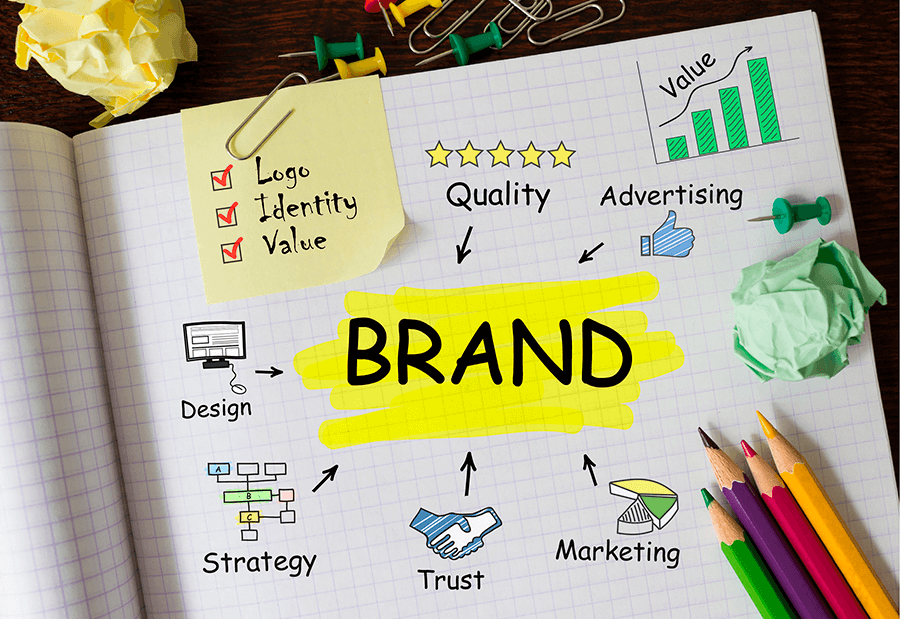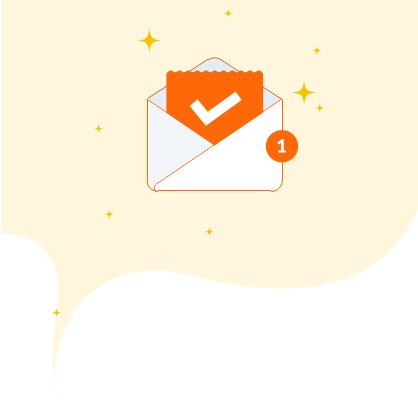
Have you ever wondered what separates a thriving online business from the rest? Often, it’s the strength of their digital marketing strategy and the agency behind it. In an era where online visibility is a battleground, selecting the right digital marketing agency is not just a choice; it’s a strategic business decision. This article guides you through critical decision-making by presenting the ten best questions you should ask potential digital marketing agencies. These questions are not just inquiries, but tools to unearth the agency that will understand your vision and bring it to life.
As we delve into each question, keep your business goals at the forefront. Whether you want to expand your digital footprint, increase online engagement, or launch new products, the right digital marketing agency can be your greatest ally. This guide will assist you in asking the right questions and interpreting the answers to ensure your business finds its ideal digital marketing partner.
Question 1: What Is Your Experience in My Industry?
When embarking on a partnership with a digital marketing agency, it’s essential to understand their level of familiarity and success within your specific industry. This question cuts to the heart of their relevant experience and ability to understand your unique market challenges and opportunities.
Why It Matters:
- Industry-Specific Expertise: Agencies with experience in your industry will likely have a deeper understanding of your target audience, competitive landscape, and the best marketing strategies. This expertise can be a game-changer in crafting campaigns that resonate with your audience.
- Learning Curve: An agency well-versed in your industry will have a shorter learning curve. They can hit the ground running, bringing in proven strategies and insights from the get-go, rather than experimenting at your expense.
- Case Studies and Success Stories: Experienced agencies should be able to provide case studies or examples of their work in your industry. These can offer tangible evidence of their capabilities and give you insights into their approach and results.
What to Look For in Responses:
- Specific Examples: Look for agencies that can provide concrete examples of their work in your industry, including campaigns they’ve run and the results achieved.
- Understanding of Industry Trends: The agency should demonstrate awareness of current trends and challenges in your sector, showing they keep their knowledge up-to-date.
- Client Testimonials: Credible testimonials from your industry can add another layer of trust and assurance.
By starting your inquiry with this question, you set a foundation for understanding how well-suited a potential agency is to your specific needs. It’s not just about what they do, but how well they do it in the context of your industry.
Question 2: Can You Provide Case Studies or References?
Asking for case studies or references is critical in evaluating a digital marketing agency’s credibility and effectiveness. This question seeks to validate their experience and success in delivering tangible results.
Why It Matters:
- Proof of Success: Case studies and references prove the agency’s ability to deliver successful outcomes. They offer insights into the agency’s approach and the effectiveness of its strategies.
- Relevance to Your Needs: Their previous work helps you assess whether their style and expertise align with what you seek.
- Client Satisfaction: References and testimonials provide a direct line to past and current clients, allowing you to gauge client satisfaction and the agency’s relationship management.
What to Look For in Responses:
- Detailed Case Studies: The best case studies detail the challenges, strategies implemented, and results. They should be relevant to your industry or your required services.
- Diverse Portfolio: An agency with a diverse portfolio of successful case studies demonstrates versatility and the ability to handle various marketing challenges.
- Genuine References: Ensure that the references are credible and be prepared to follow up with them to get a firsthand account of their experience with the agency.
This question is a window into the agency’s past performance and can provide confidence in its ability to meet your digital marketing needs.
Question 3: How Do You Measure Success and Report Results?
Understanding an agency’s approach to measuring success and reporting results is crucial. This question will help you gauge their accountability and the clarity they can communicate performance outcomes.
Why It Matters:
- Alignment of Goals: The agency’s method of measuring success must align with your business goals. Whether through increased traffic, lead generation, or improved brand awareness, their metrics should match your objectives.
- Transparency and Communication: Regular and transparent reporting indicates transparency in the agency’s operations. It lets you track progress and keeps you in the loop regarding your campaigns.
- Adaptability: The answer to this question should also reveal how the agency adapts strategies based on data. Effective digital marketing requires continual adjustments and optimizations based on performance metrics.
What to Look For in Responses:
- Specific Metrics: Look for an agency that mentions particular metrics relevant to your goals, such as conversion rates, engagement rates, or ROI.
- Reporting Frequency and Format: The agency should offer regular reporting that suits your needs. Whether weekly, monthly, or quarterly, the frequency and the format (like dashboards, written reports, or meetings) should align with your preferences.
- Case Studies or Examples: Ask for examples of reports or case studies. This will give you a real sense of how they present client data and insights.
This question is pivotal in ensuring that the agency’s performance measurement criteria and reporting methods align with your expectations and requirements for a successful partnership.
Question 4: What Digital Marketing Tools Do You Utilize?
The tools and technologies an agency uses can significantly impact the efficiency and effectiveness of its campaigns. This question will help you understand their technical capabilities and approach to utilizing digital tools.
Why It Matters:
- Efficiency and Scalability: Modern marketing tools can significantly enhance campaigns’ efficiency and improve scalability. An agency equipped with the right tools is often more capable of handling diverse and complex marketing needs.
- Data-Driven Insights: Tools for analytics and data management are essential for gaining insights into campaign performance and making informed decisions.
- Keeping Pace with Innovation: The digital marketing field is constantly evolving. Agencies that invest in the latest tools are more likely to be up-to-date with current trends and innovations.
What to Look For in Responses:
- Range of Tools: Be on the lookout for agencies that utilize a comprehensive range of tools covering various aspects of digital marketing, like SEO, social media management, content creation, analytics, and customer relationship management.
- Application of Tools: It’s not just about the tools they use, but how they use them. The agency should be able to explain how these tools contribute to the success of their marketing strategies.
- Evidence of Results: Ask for case studies or examples where they have leveraged these tools to drive successful client outcomes.
Understanding the digital tools at an agency’s disposal will give you a clearer picture of their operational capabilities and potential to deliver results in a technology-driven marketing environment.
Question 5: How Do You Handle Communication and Collaboration with Clients?
Effective communication and collaboration are critical to any successful partnership with a digital marketing agency. This question seeks to understand the agency’s approach to client relationships and project management.
Why It Matters:
- Clear Communication: Regular and clear communication ensures you’re always informed about your campaign’s progress and any issues.
- Collaboration Approach: A collaborative approach allows for a more tailored strategy that aligns with your business’s unique needs and goals.
- Responsiveness: The agency’s responsiveness to your queries and feedback indicates customer service quality and reliability.
What to Look For in Responses:
- Communication Channels: Look for agencies that offer multiple channels of communication (such as email, phone, video calls, or project management tools) that align with your preferences.
- Frequency of Updates: The agency should provide regular updates and proactively communicate developments and results.
- Client Involvement: Agencies encouraging client involvement in strategy development often yield better, more aligned outcomes.
This question will help you assess whether the agency’s communication style and collaboration methods match what you’re looking for in a long-term partner.
Question 6: What Is Your Pricing Structure?
Understanding an agency’s pricing structure is crucial for budgeting and assessing the value you’ll receive. This question aims to clarify costs, payment terms, and the services included in their offerings.
Why It Matters:
- Budget Alignment: Ensuring the agency’s pricing aligns with your budget is fundamental. Knowing how their costs correlate with the services and value provided is essential.
- Transparency and Hidden Costs: A clear understanding of the pricing structure helps avoid surprises or hidden costs.
- Scope of Services: Understanding the services the price includes helps you determine whether you’re getting a comprehensive service or facing additional charges for extra services.
What to Look For in Responses:
- Clear Breakdown: Look for agencies that provide a detailed breakdown of costs. Transparency in pricing is a good indicator of a trustworthy agency.
- Flexibility: Agencies that offer flexible pricing models (like retainer, project-based, or performance-based pricing) can be more accommodating to your specific needs.
- Comparative Value: Evaluate how their pricing compares with the market average and what additional value they bring to justify their costs.
This question is about finding an agency within your budget and understanding the value they bring for the price they charge.
Question 7: How Do You Approach SEO and SEM?
SEO (Search Engine Optimization) and SEM (Search Engine Marketing) are critical components of digital marketing. This question will help you understand the agency’s expertise and strategy in these key areas.
Why It Matters:
- Holistic Strategy: SEO and SEM should be integral to a broader digital marketing strategy. An effective approach combines both to maximize online visibility and lead generation.
- Up-to-Date Techniques: SEO and SEM are areas that constantly evolve. The agency must employ the latest, most effective techniques.
- Customization: The agency should tailor its strategy to your business goals, target audience, and industry specifics.
What to Look For in Responses:
- Comprehensive Approach: The agency should explain how they integrate SEO and SEM with other marketing efforts and the rationale behind their approach.
- Results-Oriented Strategies: Look for an emphasis on results, such as improving search rankings, increasing website traffic, and generating leads.
- Adaptability to Algorithm Changes: The agency should demonstrate an understanding of search engine algorithms and how they adapt their strategies in response to changes.
Asking about the agency’s approach to SEO and SEM can give you a clear picture of their technical expertise and how they plan to enhance your online presence.
Question 8: What Is Your Approach to Social Media Marketing?
Social media marketing is a dynamic and essential element of digital marketing. This question will uncover the agency’s strategies for leveraging social media platforms to enhance your brand’s online presence and engagement.
Why It Matters:
- Platform-Specific Strategies: Different social media platforms cater to different audiences and require unique approaches. It’s essential to know how the agency tailors strategies for each platform.
- Engagement and Brand Building: Effective social media marketing isn’t just about posting content; it’s about building a brand and engaging with the audience. Understanding the agency’s approach to these aspects is crucial.
- Integration with Overall Marketing Plan: Social media efforts should be part of a larger, cohesive marketing strategy, not isolated efforts.
What to Look For in Responses:
- Customized Strategies: The agency should demonstrate how they develop social media strategies customized to your business goals and target audience.
- Content Creation and Curation: Look for an agency with strong capabilities in creating and curating content that resonates with your audience.
- Metrics and Reporting: Inquire about the metrics they use to measure social media success and how they report them to you.
By asking about their approach to social media marketing, you can gauge how well the agency understands the nuances of different platforms and their ability to use these channels effectively for your brand’s benefit.
Question 9: How Do You Stay Updated with Industry Changes?
Staying current with industry changes is crucial in rapidly evolving digital marketing. This question helps you assess how the agency keeps pace with the latest trends and updates, ensuring that your marketing strategies remain effective and relevant.
Why It Matters:
- Adaptability to Change: The digital marketing landscape constantly changes with new platforms, algorithms, and user behaviors. An agency that actively stays updated is better equipped to adapt strategies quickly and effectively.
- Innovative Solutions: Agencies that keep abreast of industry changes are often more innovative and creative in their approach. This can give your business a competitive edge.
- Long-term Relevance: Aligning your marketing strategies with current trends is vital for ensuring long-term success and relevance in the market.
What to Look For in Responses:
- Continuous Learning and Development: Look for agencies emphasizing continuous learning, attending conferences and workshops, and staying engaged with industry thought leaders.
- Subscription to Industry Resources: Agencies should subscribe to leading digital marketing publications, blogs, and forums to stay informed.
- Real-world Application: It’s not just about knowing the trends but applying them. Ask how they have incorporated recent industry changes into their strategies for other clients.
This question will help you determine if the agency has a proactive approach to learning and innovation, which is essential for keeping your marketing strategies ahead of the curve.
Question 10: Can You Describe Your Content Strategy Approach?
A robust content strategy is at the heart of effective digital marketing. This question aims to uncover the agency’s content creation, distribution, and optimization approach.
Why It Matters:
- Customization: Every business has unique content needs. A good agency should offer a tailored approach, not a one-size-fits-all solution.
- Relevance and Engagement: The strategy should focus on creating content relevant to your audience and engaging and valuable. This increases the chances of achieving desired outcomes like higher traffic, engagement, and conversions.
- Integration with Overall Marketing Strategy: Content should seamlessly integrate with other marketing channels and strategies, like SEO, social media, and email marketing, to ensure a cohesive and unified digital presence.
What to Look For in Responses:
- Understanding of Your Audience: The agency should demonstrate a clear understanding of your target audience and how to engage them with relevant content.
- Diversity in Content Types: Look for agencies that can work across various content types — blogs, videos, infographics, podcasts, etc., depending on what resonates best with your audience.
- Evidence of Successful Content Campaigns: Ask for examples of content strategies they’ve implemented for other clients, particularly those with similar business models or in similar industries.
By asking this question, you’ll gain insights into how the agency plans, creates, and measures content, a cornerstone of any digital marketing strategy.
Conclusion: Making an Informed Decision
Selecting the right digital marketing agency is a decision that can significantly influence the trajectory of your business’s online presence. We designed the questions in this post to provide a comprehensive framework for evaluating potential agencies. By delving into their experience, approach to SEO, SEM, social media, content strategy, and communication and understanding their pricing structure, you can make an informed choice that aligns with your business objectives and values.
Remember, the ideal agency is one that not only answers these questions to your satisfaction but also demonstrates a genuine interest in understanding and growing your business. It’s about finding a partner who shares your vision and has the equipment to bring it to life.
If you’re looking for a digital marketing agency that excels in these areas and more, consider David Taylor Digital. Our team is committed to providing tailored, innovative solutions that align with your unique business needs. With our expertise in digital marketing, we’re ready to help you navigate the digital landscape and achieve the success your business deserves. Contact us today to start a conversation and see how we can elevate your digital marketing strategy.



